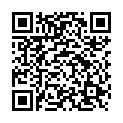|
|
|
| Module code: MEB_24_M_4.04.MK2 |
|
|
1V+3PA (4 hours per week) |
|
4 |
| Semester: 4 |
| Mandatory course: yes |
Language of instruction:
English |
Assessment:
project work
[updated 13.11.2023]
|
MEB_24_M_4.04.MK2 (P241-0433) Mechanical Engineering, Bachelor, SO 01.10.2024
, semester 4, mandatory course
|
60 class hours (= 45 clock hours) over a 15-week period.
The total student study time is 120 hours (equivalent to 4 ECTS credits).
There are therefore 75 hours available for class preparation and follow-up work and exam preparation.
|
Recommended prerequisites (modules):
None.
|
Recommended as prerequisite for:
|
Module coordinator:
Prof. Dr. Bernd Heidemann |
Lecturer:
Prof. Dr. Bernd Heidemann
[updated 28.02.2025]
|
Learning outcomes:
After successfully completing this module, students will be familiar with common rules for designing components, assemblies and machines. They will be able to construct a machine for a given task in a methodically planned procedure and assemble it in a functional manner. Students will be able to cooperate and communicate with other students in a team, and both present and defend their ideas. They will be able to discuss and evaluate the ideas of others objectively.
Students will improve their subject-related technical English skills. Students will know the subject-specific English terms.
[updated 28.02.2025]
|
Module content:
A methodical approach to design - From main functional components to standard parts Force flow-oriented and material-economical design Assembly-ready design Component design for additive, generative manufacturing processes “X-Würfel” project: Machine design and construction in a team according to a defined task. The task will be announced in an annual guideline with a specification sheet. The components designed within the framework of the project must also be suitable for production (see the "Fertigungsgerechte Bauteilgestaltung” module).
[updated 15.01.2024]
|
Recommended or required reading:
Decker, K.-H.: Maschinenelemente. Carl Hanser Verlag, München. Hoenow, G., Meißner, T.: Entwerfen und Gestalten im Maschinenbau. Bauteile – Baugruppen – Maschinen. Carl Hanser Verlag, München. Hoischen, H., Hesser, W.: Technisches Zeichnen. Grundlagen, Normen, Beispiele, Darstellende Geometrie. Cornelsen Verlag Scriptor GmbH & Co. KG, Berlin. Jorden, W.: Form- und Lagetoleranzen. Carl Hanser Verlag, München. Muhs, D., e.a.: Roloff/Matek Maschinenelemente. Normung, Berechnung, Gestaltung. Vieweg + Teubner Verlag, Wiesbaden. Muhs, D., e.a.: Roloff/Matek Maschinenelemente. Tabellen. Vieweg + Teubner Verlag, Wiesbaden. Trumpold, H., Beck, Ch., Richter, G.: Toleranzsysteme und Toleranzdesign – Qualität im Austauschbau. Carl Hanser Verlag, München Wien.
[updated 15.01.2024]
|

